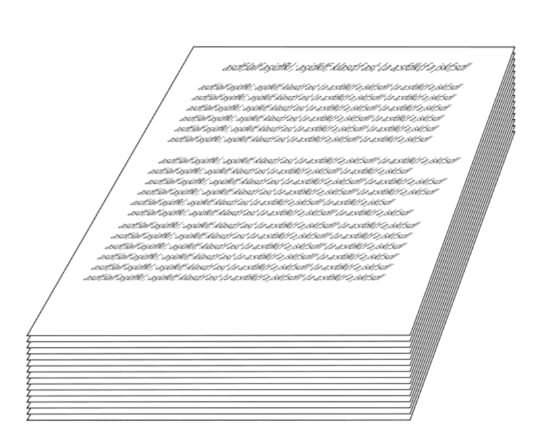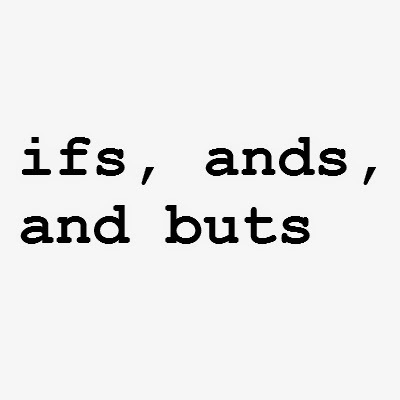Jade Varden's Blog, page 37
April 19, 2014
Books on Film: Precious
I only watched the film Precious once, because it was just so powerful I could never face it again. It's a gut-wrenching look at the life of an underprivileged girl, but before it made Gabourey Sidibe famous it was a book called Push.

The Book
Push was the debut novel for Sapphire, and she wasn't messing around. The novel focuses on Claireece Precious Jones, 16, who has the deck stacked against her. She's obese, she's illiterate, and it shows. The novel is written in her voice, so at the beginning it can be difficult to read. Saying the words out loud,exactly as they are spelled, helps.
At Each One, Teach One, Precious meets her teacher Ms. Blue Rain, along with several other students. The class is slower-paced than high school, and geared towards those who can't read well. Ms. Rain tells the girls to write every day if they want to learn how to write. Precious begins doing this.
She gives birth to Abdul Jamal Louis Jones and accidentally tells a social worker that her first child is living with her grandmother. Because of this admission, Mary loses the government money she's receiving for the child. She bars Precious and Abdul from the house when they return from the hospital.
They go to Ms. Rain, who gets Precious into a halfway house. As the story goes on, you can visibly see the writing style improve. It becomes more technically accurate. More pain is coming her way, however. She does begin to get help, but the book ends somewhat abruptly and with no real resolution. However it does end with beautiful writing, and maybe that was the point.
The Movie
Precious came to the big screen in 2009 and became an instant success. It launched Gabourey Sidibe, won an Oscar for Mo'Nique and garnered acclaim for Mariah Carey in an acting role.

Mo'Nique does a powerful turn as abusive mother Mary, and she's so good it almost hurts to watch this movie. The scene with Mariah Carey and her is so unbelievably heartbreaking, it can't even be described. Watch it to see these powerful performances...at least once.
What Got Adapted?
Much of the main character's inner dialogue is absent from the film, which is understandable since it's a highly visual medium. Many of the main details are present, however, and the film does capture the gritty, dramatic tone of the book.

The Book
Push was the debut novel for Sapphire, and she wasn't messing around. The novel focuses on Claireece Precious Jones, 16, who has the deck stacked against her. She's obese, she's illiterate, and it shows. The novel is written in her voice, so at the beginning it can be difficult to read. Saying the words out loud,exactly as they are spelled, helps.
At Each One, Teach One, Precious meets her teacher Ms. Blue Rain, along with several other students. The class is slower-paced than high school, and geared towards those who can't read well. Ms. Rain tells the girls to write every day if they want to learn how to write. Precious begins doing this.
She gives birth to Abdul Jamal Louis Jones and accidentally tells a social worker that her first child is living with her grandmother. Because of this admission, Mary loses the government money she's receiving for the child. She bars Precious and Abdul from the house when they return from the hospital.
They go to Ms. Rain, who gets Precious into a halfway house. As the story goes on, you can visibly see the writing style improve. It becomes more technically accurate. More pain is coming her way, however. She does begin to get help, but the book ends somewhat abruptly and with no real resolution. However it does end with beautiful writing, and maybe that was the point.
The Movie
Precious came to the big screen in 2009 and became an instant success. It launched Gabourey Sidibe, won an Oscar for Mo'Nique and garnered acclaim for Mariah Carey in an acting role.

Mo'Nique does a powerful turn as abusive mother Mary, and she's so good it almost hurts to watch this movie. The scene with Mariah Carey and her is so unbelievably heartbreaking, it can't even be described. Watch it to see these powerful performances...at least once.
What Got Adapted?
Much of the main character's inner dialogue is absent from the film, which is understandable since it's a highly visual medium. Many of the main details are present, however, and the film does capture the gritty, dramatic tone of the book.
Published on April 19, 2014 05:30
April 17, 2014
Writing 101: Consistency
When it comes to any type of writing, there's one thing all writers have to be: consistent. With very few exceptions, I post my writing tips to this blog Monday through Thursday, week after week. I do this because I'm consistent. Now I'm going to tell you why you've got to be consistent, too.

Consistent, Not Boring
Now, I'm not suggesting that you do things the same way every day or that you write the same book over and over again. When I say be consistent with your writing, I mean it only in very specific ways.
Tense: Don't change tenses. Seriously, do not do this. I've seen many different styles of how this is done and I've never known it to work. Don't change tenses within the same book and don't change tenses from book to book if you're writing a series. Assign a tense to a book and stick with it, no matter which you pick.Tone: If you start a book writing very flowery sentences stuffed with adjectives, you're going to have to maintain that until you get to the final page. Keep your tone consistent throughout. It you write with short sentences, do it. Always allow your voice to shine, because that's what makes your writing unique. Type: Use the same fonts and styling on every single page of your book. If Chapter 1 is centered, the other 80 chapters (or whatever) have to follow suit. Characters: Commit fully to your characters. Know who they are and what makes them tick even before you begin writing, because your characters have to be consistent. Characters should learn and grow and develop, but they should also stay true to who they are. They should be consistent (you saw that coming, right?). Exceptions to the rule: There are, of course, exceptions to every rule. In novels like Push and Flowers for Algernon, the writing style changes very dramatically through the course of the book. This is done for certain reasons, however, in order to illustrate a point about the main characters and the stories themselves. It takes a masterful storyteller to successfully change the style of the story over the course of the book, so don't try to be an exception to the rule right away.
Stay consistent while you're writing the book, and if you're ready to experiment with a new style try that out in your next book. Readers turn away from inconsistency, so commit strongly to the book you're writing and the way you're writing it. Use the next book to start trying something new.

Consistent, Not Boring
Now, I'm not suggesting that you do things the same way every day or that you write the same book over and over again. When I say be consistent with your writing, I mean it only in very specific ways.
Tense: Don't change tenses. Seriously, do not do this. I've seen many different styles of how this is done and I've never known it to work. Don't change tenses within the same book and don't change tenses from book to book if you're writing a series. Assign a tense to a book and stick with it, no matter which you pick.Tone: If you start a book writing very flowery sentences stuffed with adjectives, you're going to have to maintain that until you get to the final page. Keep your tone consistent throughout. It you write with short sentences, do it. Always allow your voice to shine, because that's what makes your writing unique. Type: Use the same fonts and styling on every single page of your book. If Chapter 1 is centered, the other 80 chapters (or whatever) have to follow suit. Characters: Commit fully to your characters. Know who they are and what makes them tick even before you begin writing, because your characters have to be consistent. Characters should learn and grow and develop, but they should also stay true to who they are. They should be consistent (you saw that coming, right?). Exceptions to the rule: There are, of course, exceptions to every rule. In novels like Push and Flowers for Algernon, the writing style changes very dramatically through the course of the book. This is done for certain reasons, however, in order to illustrate a point about the main characters and the stories themselves. It takes a masterful storyteller to successfully change the style of the story over the course of the book, so don't try to be an exception to the rule right away.
Stay consistent while you're writing the book, and if you're ready to experiment with a new style try that out in your next book. Readers turn away from inconsistency, so commit strongly to the book you're writing and the way you're writing it. Use the next book to start trying something new.
Published on April 17, 2014 05:30
April 16, 2014
Writing 101: Serial Comma
I don't often wax poetic about the finer points of punctuation (or even, really, address them), because everywhere I look people are still using 's to pluralize words so I don't much see the point in it. However, the serial comma question keeps coming up again and again. So how are indie authors supposed to address it in their books?

Once, and for All
Serial commas are the kind of thing that only writers would ever think about. Most people don't even notice whether or not they're using them. Are you...or do you only think you're using serial commas?
If you list specific items such as books, ereaders, and tablets, you might be using a serial comma. I just did, in fact.
But when I write and I have to list something, be it certain characteristics, physical attributes or personal motives, I don't use the serial comma. Can you see how it's missing in that example?
Apples, oranges, and bananas --- serial comma
Grapes, melon and berries --- no serial comma
A serial comma is the comma that appears before the conjunction in a sentence. That's usually the word and, or and but. And in most forms of magazine and newspaper writing it isn't used. Serial commas are commonly mentioned when it comes to AP style, because here they're not used.
However, such rules of style do not exist when it comes to writing novels. So when it comes to using (or not using) the serial comma, the choice is yours. This is one rule of punctuation that you don't have to pay serious attention to, so relish it. This won't happen often.

Once, and for All
Serial commas are the kind of thing that only writers would ever think about. Most people don't even notice whether or not they're using them. Are you...or do you only think you're using serial commas?
If you list specific items such as books, ereaders, and tablets, you might be using a serial comma. I just did, in fact.
But when I write and I have to list something, be it certain characteristics, physical attributes or personal motives, I don't use the serial comma. Can you see how it's missing in that example?
Apples, oranges, and bananas --- serial comma
Grapes, melon and berries --- no serial comma
A serial comma is the comma that appears before the conjunction in a sentence. That's usually the word and, or and but. And in most forms of magazine and newspaper writing it isn't used. Serial commas are commonly mentioned when it comes to AP style, because here they're not used.
However, such rules of style do not exist when it comes to writing novels. So when it comes to using (or not using) the serial comma, the choice is yours. This is one rule of punctuation that you don't have to pay serious attention to, so relish it. This won't happen often.
Published on April 16, 2014 05:30
April 15, 2014
Writing 101: Manuals of Style
So I'm cruising around the Goodreads forums the other day when I saw a post where someone was asking about a specific book, wanted to know if anyone had read it. I read a lot of books, so I decided to check it out. And then I saw the book cover...and shuddered. Yes, I recognized that book. No, I didn't respond to the forum -- because frankly, there just wasn't enough time.

You see, the poster in question was asking about The Chicago Manual of Style. And there's just no reason for me to discuss that book with indie authors...because indie authors don't need it. You don't need that manual of style, or really any other, and I'm going to tell you why.
How to Write the Right Way
The rules of writing don't begin and end with The Chicago Manual of Style. There is also AMA style, AP style, ASA style and MLA style. Here's the bad news: those are just the biggest manuals of style. Many other publications and websites, Wikipedia included, have create their own manuals of style that pull elements from all the other manuals of style they've decided that they like.
And if you're writing books, there is no reason that you have to look at any of these at all. In fact, I suggest you don't. I've looked at all the major manuals of style quite extensively, and I can tell you it's all incredibly tedious. As a writer of books, you don't need to know all these picky little rules about writing -- most of which revolve around how to write your numbers properly and where the commas ought to go -- because learning this stuff could actually screw up your writing.
Chicago, ASA, AMA, MLA -- all these style types are used in specific types of academic or scholarly writing. Most newspaper and online writing is done in AP style (which stands for Associated Press). And you don't need it, because prose is entirely different. In prose you are meant to always use your commas. You are meant to spell out all numbers, until they're specific to an address or a proper name. And if you start reading through all these manuals of style you may pick up a style of writing that book readers don't recognize. And if it looks different, people are going to assume it's wrong.
Read that again: they are going to assume it's wrong. So stick to writing in prose, ignore abbreviations and shortcuts wherever possible, and you'll stay on the right track. You have my permission to go burn all your manuals of style now.

You see, the poster in question was asking about The Chicago Manual of Style. And there's just no reason for me to discuss that book with indie authors...because indie authors don't need it. You don't need that manual of style, or really any other, and I'm going to tell you why.
How to Write the Right Way
The rules of writing don't begin and end with The Chicago Manual of Style. There is also AMA style, AP style, ASA style and MLA style. Here's the bad news: those are just the biggest manuals of style. Many other publications and websites, Wikipedia included, have create their own manuals of style that pull elements from all the other manuals of style they've decided that they like.
And if you're writing books, there is no reason that you have to look at any of these at all. In fact, I suggest you don't. I've looked at all the major manuals of style quite extensively, and I can tell you it's all incredibly tedious. As a writer of books, you don't need to know all these picky little rules about writing -- most of which revolve around how to write your numbers properly and where the commas ought to go -- because learning this stuff could actually screw up your writing.
Chicago, ASA, AMA, MLA -- all these style types are used in specific types of academic or scholarly writing. Most newspaper and online writing is done in AP style (which stands for Associated Press). And you don't need it, because prose is entirely different. In prose you are meant to always use your commas. You are meant to spell out all numbers, until they're specific to an address or a proper name. And if you start reading through all these manuals of style you may pick up a style of writing that book readers don't recognize. And if it looks different, people are going to assume it's wrong.
Read that again: they are going to assume it's wrong. So stick to writing in prose, ignore abbreviations and shortcuts wherever possible, and you'll stay on the right track. You have my permission to go burn all your manuals of style now.
Published on April 15, 2014 05:30
April 14, 2014
Writing 101: Taking Yourself Too Seriously
Admit it: have you ever teared up over a bad review? Have you ever lashed out on Twitter, yelled at a beta reader or had a total meltdown in the forums? If you're letting the criticism get to you, it's possible that you're taking yourself too seriously.

Everybody Loves a Clown?
As an author, you pour a lot of really personal stuff and a ton of emotion into every page. You sweat and cry and pace and wonder and edit, edit, edit until your eyes become blurry. Then you present your darling creation to the world...and the world promptly rips it apart.
You get rejected. You get bad reviews. You get tweets and emails you'd rather not read, and you get a new sense of insecurity and self-doubt. This is the kind of stuff that happens when you self-publish...but it's also the stuff that happens when you traditionally publish. It happens when you create a painting or present a photo. It happens to all creative people who create, so you're not alone.
If you put something out there for the world to enjoy, there are going to be people who don't. Some of those people are going to be vocal about it. And they're going to say stuff you don't like.
That's when it's useful to remember that, above all else, you're an entertainer. Books are for entertainment, even the books that are non-fiction. Even cookbooks are for entertainment. And you are an entertainer...a bit like a clown performing for the crowds in the circus.
Ask any performer, and they'll tell you that sometimes the crowd wants to throw tomatoes at you (or worse, rotten eggs). But sometimes they may throw roses instead. Entertaining the masses means having up and down days, up and down moments. If you're not taking yourself too seriously, you'll find that it's much easier to weather all this.

Everybody Loves a Clown?
As an author, you pour a lot of really personal stuff and a ton of emotion into every page. You sweat and cry and pace and wonder and edit, edit, edit until your eyes become blurry. Then you present your darling creation to the world...and the world promptly rips it apart.
You get rejected. You get bad reviews. You get tweets and emails you'd rather not read, and you get a new sense of insecurity and self-doubt. This is the kind of stuff that happens when you self-publish...but it's also the stuff that happens when you traditionally publish. It happens when you create a painting or present a photo. It happens to all creative people who create, so you're not alone.
If you put something out there for the world to enjoy, there are going to be people who don't. Some of those people are going to be vocal about it. And they're going to say stuff you don't like.
That's when it's useful to remember that, above all else, you're an entertainer. Books are for entertainment, even the books that are non-fiction. Even cookbooks are for entertainment. And you are an entertainer...a bit like a clown performing for the crowds in the circus.
Ask any performer, and they'll tell you that sometimes the crowd wants to throw tomatoes at you (or worse, rotten eggs). But sometimes they may throw roses instead. Entertaining the masses means having up and down days, up and down moments. If you're not taking yourself too seriously, you'll find that it's much easier to weather all this.
Published on April 14, 2014 05:30
April 13, 2014
Indie News: Newspaper Content Brings Indie Books into the Limelight
Ever dreamed of having your self-published book reviewed by an authoritative newspaper? The Guardian is giving indies that chance.

Spotlight on the Self-Published
Working with Legend Times, The Guardian will review self-published authors in the newspaper as part of a contest for indie authors.
You have the option of submitting one novel a year to the contest, which is held monthly. Judges include members of the Andrew Lownie Literary Agency, Lauren Parsons of Legend Press and authors Polly Courtney and Stuart Evers. The winning novel of the month will be reviewed.
The first entries for the contest began on April 8.

Spotlight on the Self-Published
Working with Legend Times, The Guardian will review self-published authors in the newspaper as part of a contest for indie authors.
You have the option of submitting one novel a year to the contest, which is held monthly. Judges include members of the Andrew Lownie Literary Agency, Lauren Parsons of Legend Press and authors Polly Courtney and Stuart Evers. The winning novel of the month will be reviewed.
The first entries for the contest began on April 8.
Published on April 13, 2014 05:30
April 10, 2014
Writing 101: What Other Authors Do
Eyes on your own paper. It's the dire warning of teachers the world over, and it can still apply to you no matter how long you've been out of school. When you're an author, you can't worry about what other authors do.

Finding a Market
A lot of authors have no doubt dreamed of writing the next Twilight or Hunger Games, but that's not how it works. You can't force lighting to strike, and you can't make yourself write within the confines of a specific outcome you want to achieve. In short, what I'm saying is this: you can't worry about finding a market for your books. You can't worry about what other authors are doing.
Don't think about what worked for them, or how they managed to find success. Don't look on Amazon to find out what's missing the book market, or what's selling, and how you can rush to fill that spot.
Don't put your creativity inside a box like that. Don't write for any reason other than this: you've got something you want to write. Writing is a passion, so you should only be writing stuff that you love. If you're trying to reach some idealized version of what you think will make you rich and famous, you're not going to be writing at your best.
It doesn't matter what other authors do. What matters is writing what you like to write.

Finding a Market
A lot of authors have no doubt dreamed of writing the next Twilight or Hunger Games, but that's not how it works. You can't force lighting to strike, and you can't make yourself write within the confines of a specific outcome you want to achieve. In short, what I'm saying is this: you can't worry about finding a market for your books. You can't worry about what other authors are doing.
Don't think about what worked for them, or how they managed to find success. Don't look on Amazon to find out what's missing the book market, or what's selling, and how you can rush to fill that spot.
Don't put your creativity inside a box like that. Don't write for any reason other than this: you've got something you want to write. Writing is a passion, so you should only be writing stuff that you love. If you're trying to reach some idealized version of what you think will make you rich and famous, you're not going to be writing at your best.
It doesn't matter what other authors do. What matters is writing what you like to write.
Published on April 10, 2014 05:30
April 9, 2014
Writing 101: Undecided
I've always been the sort of writer who has a one-track mind. Once I commit to a project, that's it. That's what I'm working on, and I'm working on it until I'm done. But lately, it hasn't been like that. I've recently found myself working on two different books at once, and I'm weirdly synced up because they're both on the same chapter right now. Have you ever been undecided while writing your books?

One Way or Another
Focusing on a single story has always been my habit. I think about it when I'm not writing it, I worry over it when I don't really need to, I go back and reread it way too many times. But I realized, after a particularly poignant moment, that I have a habit of getting way too involved. And that's not good for me.
Up to a certain point, every author has to remain somewhat detached from every story and every character. Every author has to be this way, because almost every author ends up becoming a murderer -- of literary characters, that is. So it doesn't really pay to get all involved with a certain character or a particular story. It never does, because eventually that story will come to an end. You have to move on, and if your heart breaks every time you're doing a lot of damage to yourself.
So maybe working on multiple book projects is actually better than a single-minded pursuit. Working on two stories makes it easier to stay detached from both of them, because you always have another to think about. But if you're going to work on two manuscripts at once, outline them both clearly. Have complete character lists and notes, and keep these two projects in distinctly separate folders.
Stay undecided, and work on every project that strikes you -- just make sure you get something finished in a timely fashion.

One Way or Another
Focusing on a single story has always been my habit. I think about it when I'm not writing it, I worry over it when I don't really need to, I go back and reread it way too many times. But I realized, after a particularly poignant moment, that I have a habit of getting way too involved. And that's not good for me.
Up to a certain point, every author has to remain somewhat detached from every story and every character. Every author has to be this way, because almost every author ends up becoming a murderer -- of literary characters, that is. So it doesn't really pay to get all involved with a certain character or a particular story. It never does, because eventually that story will come to an end. You have to move on, and if your heart breaks every time you're doing a lot of damage to yourself.
So maybe working on multiple book projects is actually better than a single-minded pursuit. Working on two stories makes it easier to stay detached from both of them, because you always have another to think about. But if you're going to work on two manuscripts at once, outline them both clearly. Have complete character lists and notes, and keep these two projects in distinctly separate folders.
Stay undecided, and work on every project that strikes you -- just make sure you get something finished in a timely fashion.
Published on April 09, 2014 05:30
April 8, 2014
Writing 101: Forcing It
There are times when you need inspiration to strike, when you have to wait for the right creative mood to hit you. And then, there are times when you just have to sit down in front of the keyboard...and force it to come.

Disciplined
More than any other trait, I think writers have to be disciplined. It's incredibly difficult to sit down in front of a screen for 12 hours at a stretch, making little black characters appear on a white screen. Your family will be all around you talking and yelling and asking questions. Intriguing stuff will show up on TV, and weird questions will appear in your mind to tempt you into using Wikipedia. Twitter will beckon, emails will arrive, phones will ring and at some point you may wander off to go get a snack. Discipline is the only thing that makes it all work. But discipline isn't just about ignoring the TV show or telling your family to hush up. It needs to go much deeper than that.
And in those moments, forcing it may be the only thing that's going to work. You have to just sit down and start writing. Get yourself back into the flow of writing. Pay attention to the feeling of your hands on the keys. Watch the words as they appear on the screen. They don't have to be good words. It doesn't have to be something that you'll use. But you do have to sit down and do it. Because once you get yourself back in that mindset of storytelling, you'll find your writer's block slowly fading away. Just start writing something involving your characters, and see where it takes you.
Forcing it requires discipline. And if you have enough discipline to force those words to come out of your fingers, you've got enough to be a writer.

Disciplined
More than any other trait, I think writers have to be disciplined. It's incredibly difficult to sit down in front of a screen for 12 hours at a stretch, making little black characters appear on a white screen. Your family will be all around you talking and yelling and asking questions. Intriguing stuff will show up on TV, and weird questions will appear in your mind to tempt you into using Wikipedia. Twitter will beckon, emails will arrive, phones will ring and at some point you may wander off to go get a snack. Discipline is the only thing that makes it all work. But discipline isn't just about ignoring the TV show or telling your family to hush up. It needs to go much deeper than that.
And in those moments, forcing it may be the only thing that's going to work. You have to just sit down and start writing. Get yourself back into the flow of writing. Pay attention to the feeling of your hands on the keys. Watch the words as they appear on the screen. They don't have to be good words. It doesn't have to be something that you'll use. But you do have to sit down and do it. Because once you get yourself back in that mindset of storytelling, you'll find your writer's block slowly fading away. Just start writing something involving your characters, and see where it takes you.
Forcing it requires discipline. And if you have enough discipline to force those words to come out of your fingers, you've got enough to be a writer.
Published on April 08, 2014 05:30
April 7, 2014
Writing 101: You May Not Be Googling Enough
If you're like me, Google is your homepage. You refer to it constantly to look up words, find information...and sometimes, figure out the name of that person in that movie who's now in the TV show that's driving you crazy. But Google isn't just there to lead you on weird Wikipedia trivia hunts or help you find that particular Family Guy clip you've got to watch again. In fact, as an indie author you may not be Googling enough.

Are You There, Google? It's Me, Jade
I use Google to take a look at maps, learn more about trees and figure out if I'm really using further the right way in that sentence. It's always open on all my devices, and I've asked it any number of insane questions. But there's something else I always do with Google, and all other indie authors should as well: I check all my titles and names. Do you?
When you self-publish a book, you're going to end up promoting it for years to come. So before you put it on the cover and make a trailer and list it on Amazon for all to see, do yourself a favor and go to Google. Before you do anything as an indie, you should be Googling several key things:
Your author name: Whether you're using a pen name or the one you were born with, go and Google it first. If your name is Jennifer Hudson or Anne Rice, you should probably try using a Google is an essential tool for any writer, but it's not just there for research. As an indie author you always have to be thinking about brand recognition. Use Google to make sure you're going to get it.

Are You There, Google? It's Me, Jade
I use Google to take a look at maps, learn more about trees and figure out if I'm really using further the right way in that sentence. It's always open on all my devices, and I've asked it any number of insane questions. But there's something else I always do with Google, and all other indie authors should as well: I check all my titles and names. Do you?
When you self-publish a book, you're going to end up promoting it for years to come. So before you put it on the cover and make a trailer and list it on Amazon for all to see, do yourself a favor and go to Google. Before you do anything as an indie, you should be Googling several key things:
Your author name: Whether you're using a pen name or the one you were born with, go and Google it first. If your name is Jennifer Hudson or Anne Rice, you should probably try using a Google is an essential tool for any writer, but it's not just there for research. As an indie author you always have to be thinking about brand recognition. Use Google to make sure you're going to get it.
Published on April 07, 2014 05:30



